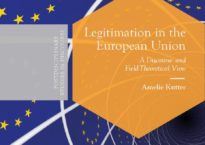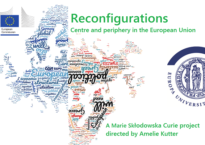Kutter, A. (2020) Construction of the Eurozone crisis: re- and depoliticising European economic integration
The Eurozone crisis is among recent developments that upset the European Union (EU) most profoundly and sparked unprecedented contestation. This article adopts a discursive notion of politicisation and the frame of Discursive Political Studies to investigate whether that moment of contestation re-politicised EU economic governance in substantive terms. It argues that, while emerging counter-narratives of crisis projected alternative scenarios of economic integration and established a practice of constructive EU critique, they were co-opted by the dominant mass-mediated story of a public debt crisis.


